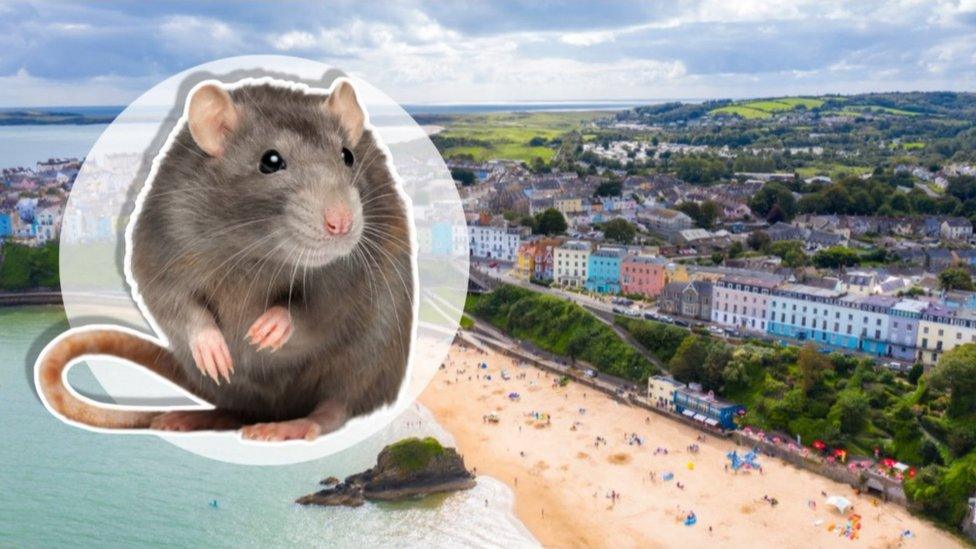Cat-sized rats causing chaos on the coast at Tenby in Wales
- Published
- comments

People living in a popular seaside town in Wales have claimed they've seen rats "as big as cats" and they're causing problems.
Footage of some of the rats shows them scuttling around Castle Beach in Tenby with concerns that their nests are damaging cliffs in the area.
Pembrokeshire council urged people not to feed birds or drop food, and said specialist staff were examining the cliffs where the rats are thought to be living.
Rats are known for constantly searching for their next meal and are especially fond of food waste. As well eating rubbish, litter is often used as nesting for these rodents too.
Rats are mainly nocturnal - meaning active at night and live underground.
Rats have super-strong teeth that never stop growing! They have to keep nibbling to wear them down.
Rats' whiskers are more sensitive than human fingertips. They brush the long hairs against things to get a detailed picture of their environment.
It's true that rats can spread diseases among humans, but the rodents also keep themselves clean by constantly licking their fur.
Rats are also great swimmers, able to hold their breath for several minutes.
Roger Miles said the rats were as 'big as cats'
Roger Miles who's a boatman in the area, said rats had become a worsening problem over the last few months, adding that he believes the rodents are bigger than normal.
"Rats as big as cats sometimes, they're really big rats," he said.
"Early evenings, dusk, early morning, rats all over the place really.
"There's a certain area where you see parts of the cliff have been eroded."
Each year, around two and a half million people visit Tenby as tourists, meaning visitor numbers are important for the businesses in the area.
Michael Lindsay has run the town's Dennis Caf茅 for 30 years and said: "we probably see a rat at least once a week running around on the roads."
A Pembrokeshire Council spokesperson said: "We are aware of issues with rodents" and "are working to address this concern".
- Published26 October 2022
- Published25 September 2020
